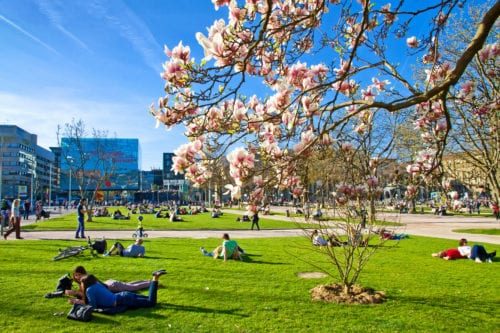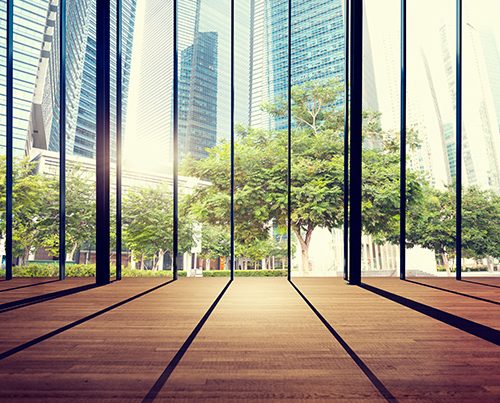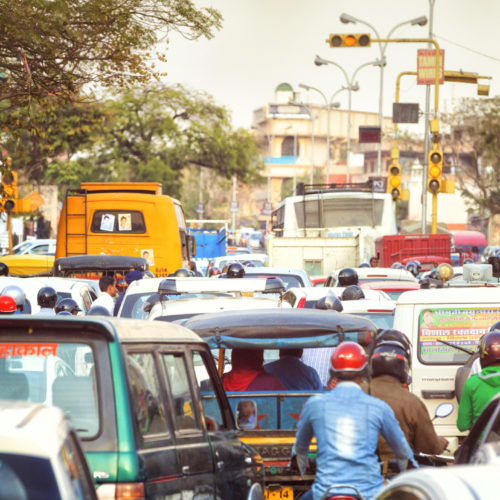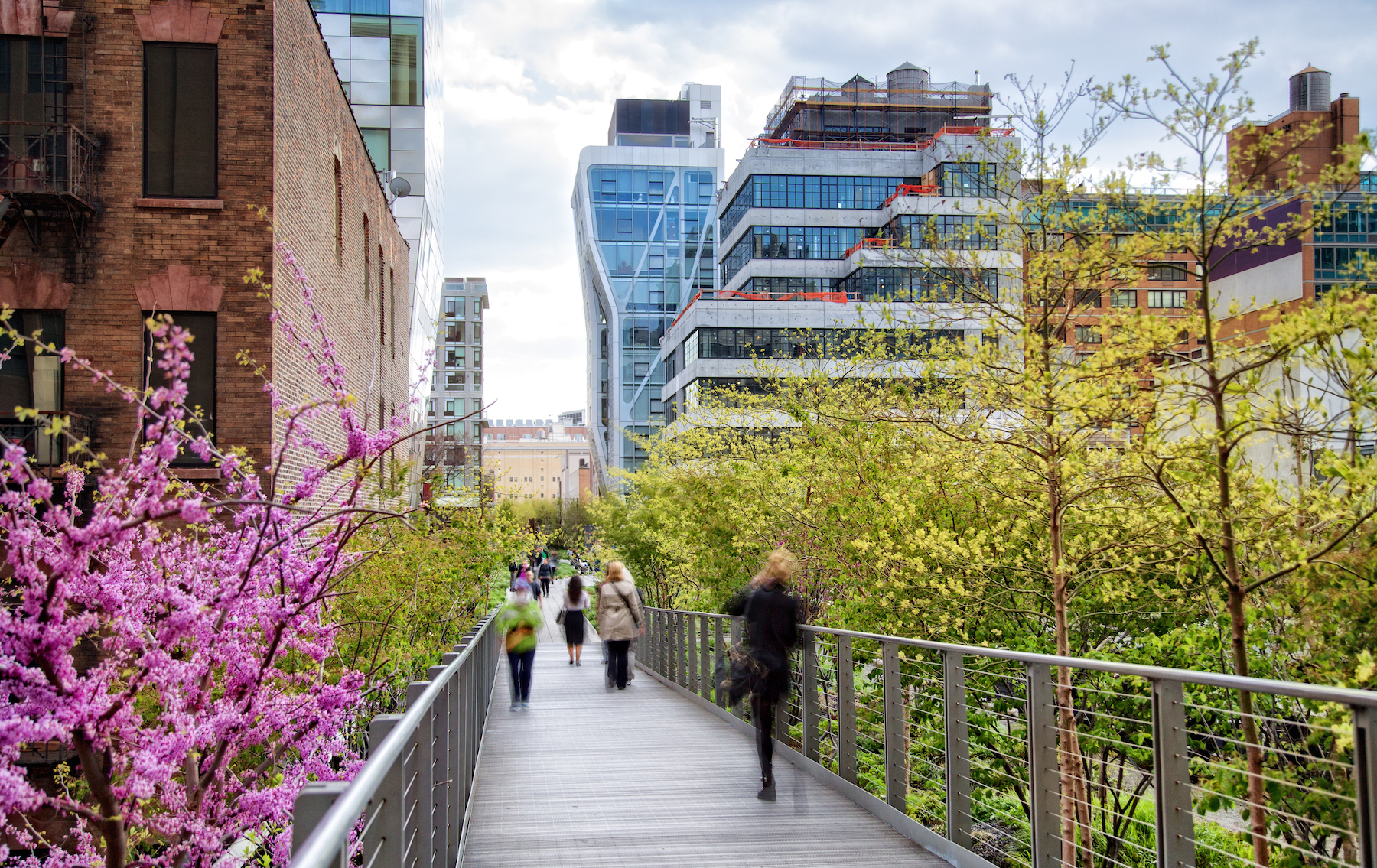RMI's Kaitlyn Bunker reflects on the health and economic benefits of shifting her daily commute from her personal vehicle to multi-modal transportation.

Healthy, Zero-Carbon Cities
Climate change threatens not only our environment, but also our health. Poor indoor and outdoor air quality is a direct result of the fossil fuels we burn. But with the right changes and actions today, we can have cleaner air for our families to breathe and more vibrant outdoor spaces in which to play. And, as the world population continues to urbanize, cities and communities are at the forefront of setting a path for a better climate future to benefit the health and wellbeing of their citizens.

Burning of fossil fuels, unhealthy buildings, and dependence on personal vehicles all threaten our health. A clean energy future can save lives and cut health costs.
Our health is suffering due to our fossil-fuel-based economy. In many industrialized countries, we are breathing in dirty air largely due to burning coal for our electricity and oil for our transportation, leading to 6.5 million deaths each year globally. Our indoor air quality is also causing health problems due to our aging, out-of-date building stock. And in developing economies, millions of people without access to electricity suffer poor health from breathing kerosene fumes on a daily basis. Fortunately, thanks to leadership in cities and regions around the world, pathways exist for thriving, zero-carbon cities that enhance our health, safety, and quality of life.
Minneapolis aerial with Downtown Minneapolis skyline in the background and Loring Park with Loring Pond in the foreground, during early autumn.

Helping Cities Go Renewable
Cities account for more than 70 percent of global CO₂ emissions and over two-thirds of global energy consumption. Cities can be at the center of combating climate change by leading the charge to renewable energy. The American Cities Climate Challenge Renewables Accelerator aims to go beyond the theoretical and scale up high-impact urban climate solutions that are already proven to succeed. The Renewables Accelerator is a free one-stop shop providing the tools, resources, and technical assistance US cities need to go renewable.

Creating Healthier Buildings
The U.S. building stock is aging, leading to poor indoor air quality, out-of-date HVAC systems, bad ventilation, and toxic building materials. High-performance buildings—new build and retrofits—have improved indoor air quality, providing a better environment for the people in them thanks to better ventilation, smaller and higher-performing mechanical systems, and biophilic design elements. RMI is helping cities to design creative policies and programs that spur demand for higher performing commercial and residential buildings—from the Residential Energy+ team's City Cohorts to improve home performance, to our zero-carbon policies work that advises cities, regions, and states to institute innovative policies and codes that encourage carbon-free, healhty buildings.

Transforming Urban Mobility
India, and other developing economies, is at a critical juncture for their energy and mobility future. We’re developing the “Urban Mobility Lab,” a platform to support a replicable process to transform the way goods and people move in Indian cities, by identifying, integrating, implementing, and scaling pilot projects that offer safer, low-carbon options to residents while moving the country as a whole forward toward a healthier clean energy economy.
An aerial view of downtown cityscape in Shenzhen, China (Daytime)

Clearing the Air in China
In China, air pollution levels regularly exceed the World Health Organization’s recommended healthy levels. The smog, just one of the many physical manifestations of an energy system built on fossil fuels, has devastating health effects. That’s why we are working with our Chinese partners to help bring about a China that not only runs on clean renewable energy, but is also a global leader in the movement toward clean fuels. Our goal is a China that blazes a path for all developing countries, proving that clean energy can be a powerful instrument of economic growth.

Supporting Zero-Carbon Cities and Regions
The Regions Take Action handbook, the Carbon-Free Cities Handbook, and the Carbon-Free Regions Handbook show how city and regional governments are reaping the immediate benefits of decisive climate action. They offer no-regrets, practical solutions that help cities and regions with ambitious climate commitments to act today, and move more quickly along the path to climate neutrality. Solutions offered across the buildings, transportation, electricity, industry, land use, and waste can enable city, state, and regional leaders to improve air quality, living conditions, and overall quality of life for rapidly urbanizing populations.

Catalyzing U.S. City Climate Commitments
America’s Pledge is showcasing that in the US, states, cities, businesses, and others are embracing the healthier, low-carbon future detailed in the Paris Agreement—helping drive better outcomes for their own citizens and business operations—despite a step back in leadership and commitment by the US federal government.
Who’s Joining Us to Make a Difference
We work with bold partners that understand that human and environmental health are inextricably linked. Whether it's owners, designers, and contractors responsible for delivering healthier homes and office buildings, or investors who want to channel their money into a technology or business model that delivers a triple-bottom-line benefit to people, the environment, and their pocketbooks, there is growing agreement among leaders across diverse industries that our climate change problem is a human problem, and they are committed to solving it. For example, we're working with the Building Performance Institute to increase homeowner demand for home performance upgrades that save energy, but also lead to safer, healthier, and more comfortable homes.

When I read Reinventing Fire, a lightbulb went on in my head about how critically important it would be for the Building Performance Institute and RMI to collaborate on upgrading the performance of the nation’s 134 million homes in terms of comfort, health, safety, durability, and energy efficiency. This collaboration is truly ‘reinventing’ an industry sector.
‐Larry Zarker, Chief Executive Officer, Building Performance Institute
Stories from the Field
Koben Calhoun and Paul Bodnar share how U.S. cities and businesses have already adopted greenhouse gas emissions targets that could cut annual emissions by 500 million tons of CO2 from business-as-usual levels by 2025.
RMI's Doug Miller shares why health professionals should consider the link between indoor air quality and a subset of home energy upgrades.
RMI's Doug Miller explains how an increasing number of organizations are recognizing the value beyond energy cost savings provided by energy-efficient buildings, such as worker health and productivity.




